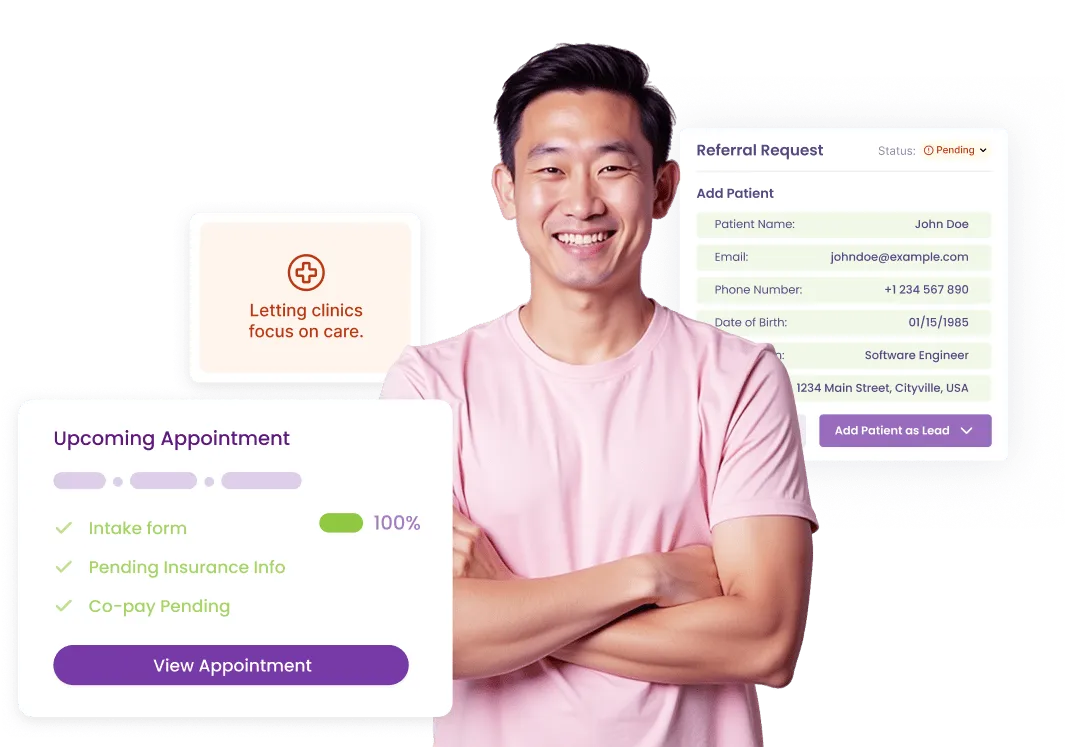H2021 – Substance Use Counseling / Behavioral Health Service
CPT code H2021 represents a distinct mental or behavioral health service, including evaluation, therapy, or care coordination.
What is CPT
H2021
?
H2021 is a designated code utilized predominantly for counseling services in the realm of substance use treatment. This section provides a comprehensive overview of the clinical applications, documentation requirements, and payer considerations associated with this code. It is essential for providers to ensure that clinical notes are aligned with evidence-based practices, articulating clearly defined treatment objectives, interventions employed, and observable progress. In instances where the code is billed based on time, it is imperative to accurately document the start and end times of the session to justify the billed duration effectively.

Documentation Tips
Accurate documentation is crucial for compliance and reimbursement. When billing for time-based psychotherapy using H2021, providers should meticulously record start and stop times during sessions. Include the therapeutic modality applied, the specific assessment tools utilized, the clinical focus of the session, the patient's responses to interventions, and a detailed follow-up plan. For sessions involving scored assessment instruments, maintain copies of these tools for reference. In telehealth scenarios, it is vital to document patient consent and the platform used for service delivery. Employing standardized documentation formats such as SOAP (Subjective, Objective, Assessment, Plan) or DAP (Data, Assessment, Plan) can enhance audit readiness and consistency.

At a Glance
- Service Type: Substance Use Counseling
- Use Case: Individual or Group Counseling Sessions
- Typical Setting: Outpatient clinics, community health organizations, or via telehealth platforms (subject to payer guidelines)
- Billing Unit: Per session or per assessment instrument (varies according to specific payer policies)
- Common Pairings: 90791 (Psychiatric Diagnostic Evaluation), 96127 (Brief Emotional/Behavioral Assessment), and other psychotherapy codes
Billing Examples
Consider a scenario where a counselor conducts a series of relapse prevention counseling sessions aimed at helping clients identify and manage triggers associated with substance use. During these sessions, the counselor documents specific triggers encountered by the client, coping strategies discussed, and any updates to the treatment plan based on the client's evolving needs. It is important to note that group therapy and individual counseling should be billed using distinct HCPCS/CPT codes according to payer regulations, ensuring that documentation reflects the unique components of each service type.
Compliance Guidelines
- Before submitting a bill, confirm the specific coverage policies and authorization requirements set forth by the payer.
- Ensure that documentation demonstrates medical necessity and explicitly links the provided services to relevant ICD-10 diagnoses.
- Correctly apply modifiers where applicable (e.g., modifier 95 for telehealth services) to meet payer requirements.
- Avoid upcoding; carefully select the code that accurately reflects the documented service duration and complexity.
- Conduct regular audits of billing practices and documentation to reduce the likelihood of denials and to enhance the quality of clinical records.
Common ICD-10 Codes
Helpful links for mental health billing and documentation
- F10.20 (Alcohol dependence, uncomplicated)
- F11.21 (Opioid dependence, in remission)
- F19.20 (Poly-substance dependence, uncomplicated)
- F10.10 (Alcohol dependence, in early remission)
- F12.20 (Cannabis dependence, uncomplicated)
Additional Resources
Helpful links for mental health billing and documentation
Related CPT Codes
Helpful links for mental health billing and documentation
Got questions? We’ve got answers.
Need more help? Reach out to us.
Q1: What specific services does this code cover?
A: H2021 is employed when the clinical activities performed align with the code's definition for substance use counseling. It is crucial that documentation supports the billed service.
Q2: Is it permissible to bill this code for telehealth sessions?
A: Yes, many payers allow billing for telehealth services when they meet the criteria for synchronous delivery and appropriate modifiers and consent documentation are recorded. Always check the specific payer policies.
Q3: What type of documentation is typically requested by payers?
A: Payers often request documentation that details the time spent, the therapeutic techniques or assessment tools used, the patient's response to the interventions, and a clear linkage to a covered ICD-10 diagnosis.
Q4: Can H2021 be billed in conjunction with other services?
A: Yes, when billing multiple services, it is critical to document distinct time allocations and rationales for each service. Utilize add-on codes or follow E/M separation rules where applicable to ensure compliance.
Q5: What are some common reasons for claim denials associated with this code?
A: Common denial reasons include missing time documentation, insufficient evidence of medical necessity, incorrect application of modifiers, or billing outside of established frequency limits.

